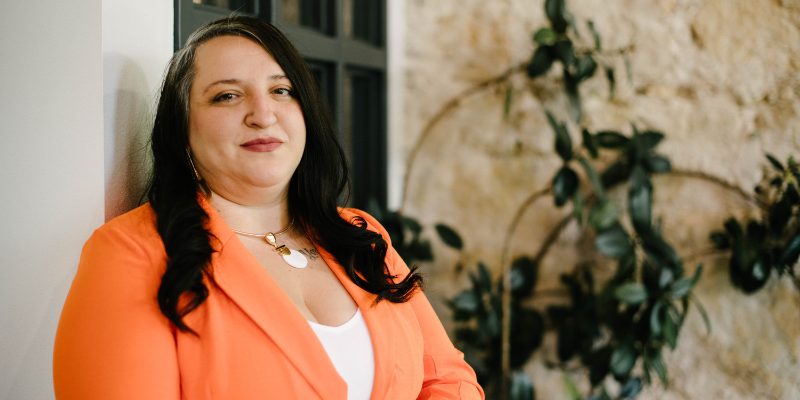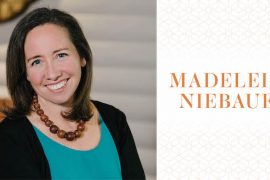By Jessica Steinhoff | Photography by Hillary Schave, shot on location at Ellsworth Block
Growing up in an Albanian Muslim immigrant family, Sehade Carter found middle school especially hard. Her classmates made fun of her name so often that she started going by Sarah.
“After 9/11, there was lots of, ‘Go back to where you came from,’” she says.
Carter comes from a patchwork of places. Though she has called Madison home for 11 years, she was born in Macedonia. Albanians had few rights there, and conflict between the Albanians and Serbians showed no signs of stopping.
“My father wanted better opportunities for us,” Carter says.
He was the first to immigrate to North America, and 4-year-old Sehade followed soon after with her mother and two siblings. The four took a boat to Mexico, then headed to the United States, where Border Patrol stopped them. After staying in an encampment, the family settled in the Chicago suburbs. When Carter was 12, they moved to south-central Wisconsin.
Uncertainty shaped her young life. Her parents spoke little English, but language interpretation wasn’t available in Albanian. When completing immigration forms or attending court dates, they had to depend on people they barely knew and weren’t sure they could trust.
Meanwhile, financial barriers mounted. After spending $50,000 on immigration lawyers during their first seven years in the country, her parents ran out of money.
“We couldn’t get food stamps or rental assistance, though, because we were undocumented,” she explains.
Working for cash at restaurants was their best option for making ends meet. When Carter was 14, her parents pulled her out of school so she could waitress full time at their family restaurant.
“In our culture, education [for women] isn’t very important,” she explains. “I was expected to get married when I turned 18, which I didn’t want to do.”
Carter started planning her escape. Through friends, she found a $500 car and a cheap apartment in East L.A. She expected severe fallout and hoped the distance could protect her. “If an Albanian Muslim woman leaves her family, they’ll shun her and usually threaten to kill her, which is what my father did when I left,” Carter says.
Despite this trauma, Carter built a life for herself over the next few years. She found a job and a solid group of friends, plus important new identities: mother and permanent resident.
Though she returned to Wisconsin to raise her child, her parents and siblings didn’t reach out.
“I didn’t speak to my parents or siblings from when I left at 18 until I was 32 and my mother had terminal cancer,” she says.
Carter invested in her kids and career, earning an associate’s degree and discovering her talent for people-centered problem solving while climbing the managerial ladder at Target and other retailers.
A colleague was so impressed with her business acumen that she recommended her for an HR manager role that she currently holds at Plastic Ingenuity, a manufacturer with nearly 1,000 employees.
“I help people find solutions not only for work issues but personal issues that may be affecting their work,” she says. “The experiences I’ve had as an immigrant help me view situations through a lens of empathy.”




